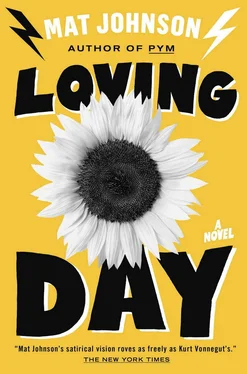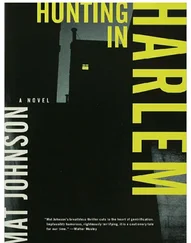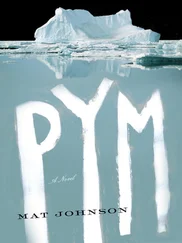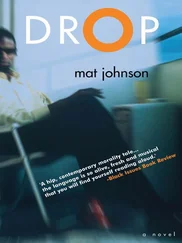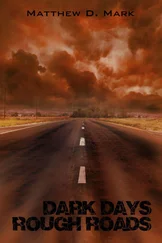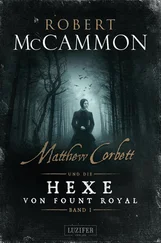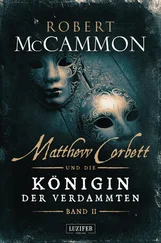“I’m not your student anymore. Whiteness class is over. I’m fully bleached,” I call after her. I want it to sound like a joke instead of a desperate, marinated whine.
“Still,” Sun offers, but keeps walking.
“You know that’s a bullshit excuse. That’s like, ‘I have a boyfriend in Canada.’ Or, ‘I have TB.’ ” To that, Sun looks over her shoulder at my body, my clothes. Then up at my eyes. Sun holds there.
“How about, ‘I have a boyfriend, and while it’s an open relationship, no.’ Does that work? Or we could try, ‘You’re not unattractive, but you’re also a mess and my life is complicated enough without someone else’s mud?’ ” Sunita waits for a response this time. I have nothing. Those are pretty good reasons. I shrug, she nods; we’re doing so well without words these days.
She gets me, I think, watching her ass as she walks off. And she really does get me, because then her head swings back over her turning shoulders enough to catch me; then she pulls down her shirt to cover her rear without even looking back.
—
I spend the ten-minute drive to Germantown feeling guilty about getting caught staring at Sunita Habersham’s buttocks, pausing only to drop Tal off at the thrift store on Chelten Avenue. I used to come to this corner with my mom, when the Woolworth’s was still open. On any Saturday, the streets were crowded with shoppers, the place was alive. This was when Allen’s department store was still open. Before Asher’s Chocolates closed its store and moved their factory away. When the Bell Telephone building actually had Bell Telephone inside. Before the industrial jobs left for overseas. Before the last monuments to a stable economy were eroded through numerous recessions. Before desegregation encouraged the flight of the black middle class. Before the crack epidemic raged through the weakened community like an opportunistic infection. That’s over and it seems to be getting better — I can admit that: it’s better than when I left. But I see it against the images of before and it’s still devastating. What’s left are the businesses that can stay afloat even after economic collapse. Now, it’s a great place to buy overpriced sneakers. Or prepaid cell phones. It’s a great place to search sidewalk kiosks for brand names printed on generic sweatshop clothes. There’s African braiding if you have the money, the entire day, and a high pain threshold. “Go to Value Village. Rich people from Chestnut Hill donate clothes there. And be careful out here,” I tell Tal as I pull up the Beetle to let her out. It’s tuned up, its tickets paid off, headlights replaced and the dents pulled out. Everything is making a comeback.
“Germantown’s not that bad. There’s fancy parts of Germantown too. I know tons of rich kids who live here, in really nice houses, on really nice blocks. You act like it’s some hellhole,” she tells me, and I look around, and sure the street’s basically clean, and it’s mostly just a bunch of working people waiting for the bus, and she’s right. But three miles up Germantown Avenue the white people have Chestnut Hill, and it’s thriving, with microbrewers and Zagat-rated restaurants and a functional retail ecosystem and why can’t we have it like that?
At the house, the security cams install easily because they’re meant to go up quickly, discreetly, possibly before the owner comes home. I’m done with the hardware and finishing the install of the software by the time Tal walks in the door with bags and a look on her face as light as her load is heavy.
“Wow. There’s like no white people at all at night on Chelten Avenue. I didn’t see one!” she tells me as she closes the door.
“I hope you didn’t feel uncomfortable.” And I really mean that. Not as an apology, but because I hope I don’t have a daughter who feels uncomfortable if there are no white people around.
“Why should I? I mean, I’m not, like, white anymore. It’s very liberating. Totally.” And she’s off to the upstairs bathroom to change before I can question her line of thinking.
When she comes down the steps, Tal’s wearing solid cork platform pumps tall enough that the top of her head threatens to brush the paint-chipped doorway she walks through. Her feet are held there, perpetually in sprinting position, by a band of what appears to be cheetah fur, if cheetahs were pink. No cheetah is pink. Then there’s nothing but bare leg for a good eight inches going north, till a matching strip of print, presumably skinned from the same mutant feline, cuffs the bottom of her tight capri jeans. This feral pink fabric is on the collar of the jean jacket she’s wearing too, and it’s a good thing Tal’s wearing a jacket because the T-shirt she’s got on doesn’t even bother to cover her navel. Above, Tal’s hair is out. Out and screaming its inner Africa. Furious at years of bondage, and celebrating its nappy roots.
“I like your hair,” I tell her, because there are about 413 things I can think to say, and that’s the nicest one. Number two is: What’s the name of your twerk team? I open up my mouth, but nothing more constructive occurs to me, so I just keep looking at Tal, slack-jawed.
“What about the rest? That thrift shop went out of business, apparently. It’s a day care now. So I walked up Chelten and found this place called City Blue? Very urban. Very authentic. Don’t you think?” Tal opens up her jacket and points to the label on the chest of her tattoopattern shirt. It says APPLE BOTTOMS.
“It’s the name of the brand, Pops. Not a reference to my actual butt,” she says. When that doesn’t give her the desired response, Tal follows with, “It’s a very popular black brand.”
“You can’t think I would actually approve of this. You’re not going to your grandfather’s like that.”
“Yes, I am. I am so not worried about Irv and the whole Karp clan. If Irv can’t accept my blackness, then that’s his problem.”
“No, you’re not. Tal, those clothes have nothing to do with your ethnicity.”
“I’m supposed to be ‘transcending my assumed racial notions.’ That’s what the school you— you —sent me to, is telling me.”
“Tal, there’s no way they meant dress like that. Don’t conflate ghetto culture with blackness.”
Her mood, the smile, gone. She starts taking one of her hollow gold earrings out of her lobe and I think I’ve gotten through to her until it’s thrown at me. It’s a childish response. Possibly genetic, since I come back with:
“For the record, as your father I should let you know that dressing like a hoochie mamma is a bad life choice in general.”
“Fuck you!” The other earring actually hits me. On my forehead. It feels like it cuts deep but it’s only bleeding a little when I take my hand off it.
“You’re right. That was harsh. Fuck me. I’m sorry.” Sunita Habersham would know how to handle this. That’s who Tal needs right now.
“That’s right, eff you. I tried. You can’t say I didn’t try, okay? I’m trying.”
“Try what? What’s this about? Explain it to me, okay?” I pause for an answer. I wait for a few seconds, unsure if I should be breaking the silence.
“I knew,” is all Tal finally tells me. I see her shoulders shake, think she’s laughing, but then she lets out a wail and goes at it harder and I know she’s crying. Tal’s really crying; there is a sound long and hollow like it’s being pulled out of her, ripping flesh as it goes. I reach out, pull her into me, but her arms are just limp under my own.
“I knew. I always did.” Her voice cracks; her body shakes. I hold her firmer like I can stop this.
“Knew what?”
“I knew you were black. What I am. Nobody, like, had the decency to say something to my face, but I knew,” Tal says after her breathing slows.
Читать дальше
